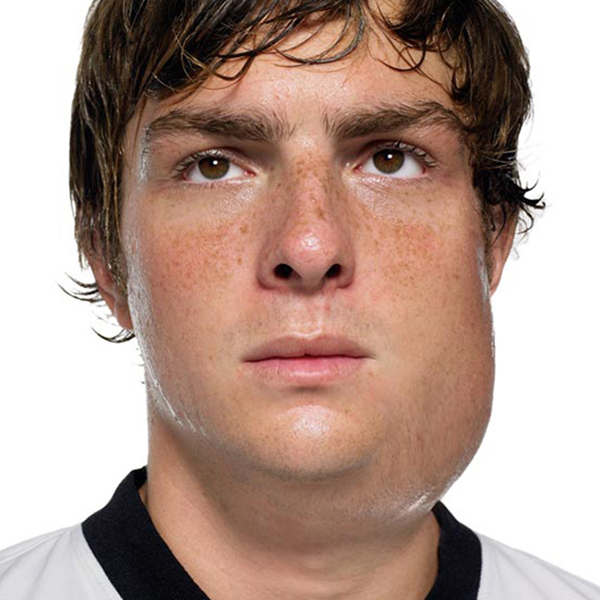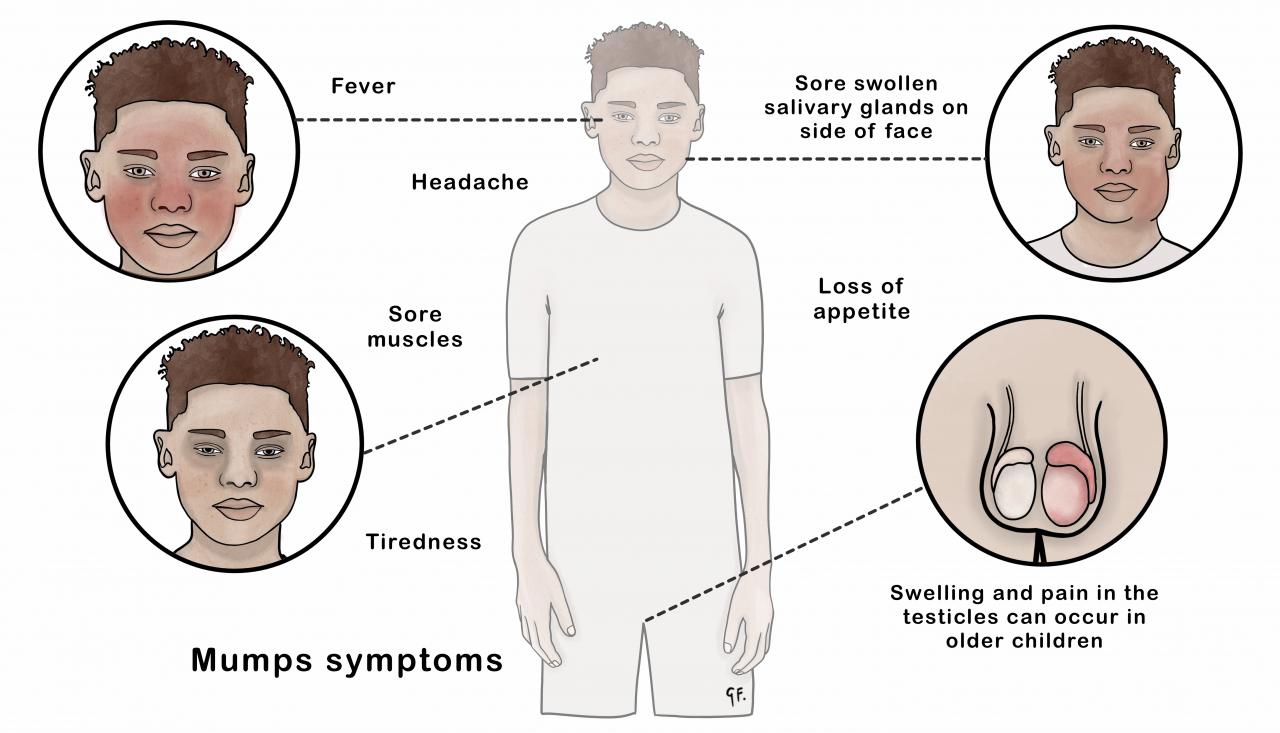Mumps
Mumps
Mumps is a viral illness which can be serious. Immunisation is the only way to prevent it.
Key points about mumps
- mumps is caused by a virus
- it is very easy to catch
- immunisation is the only way to prevent mumps
Check the information about mumps immunisation
What is mumps?
Mumps is a viral illness which can be serious. It spreads very easily from one person to another.
Who is at risk of getting mumps?
Your child is most at risk of catching mumps if they have never had mumps or they haven't had both doses of the vaccine that protects against mumps.
People aged 12 to 29 years are at greatest risk of catching mumps. They are less likely to have had all their immunisations as young children.
People are also at greater risk of catching mumps if they were born in Fiji, Tonga, Kiribati, Nauru, Papua New Guinea, Solomon Islands, Tuvalu and Vanuatu, or in some mainland nations in Asia. That's because these countries may not have immunised children against mumps.
What are the signs and symptoms of mumps?
It can take 12 to 25 days from contact with someone with mumps to getting sick with mumps. This is called the incubation period.
Some children, particularly young children, can have mumps without symptoms.
Symptoms can include:
- swelling and soreness of the salivary glands at the side of your child's face
- fever
- headache
- feeling unwell, tiredness
- muscle aches
- loss of appetite
- pain and swelling of a testicle in teenage boys
The fever usually lasts about 1 to 6 days, but the swelling in the glands can last for more than 10 days.

How serious is mumps?
Most children recover from mumps. Unimmunised teenagers and adults who get mumps are more likely to have severe disease and complications. Complications in people with mumps include:
- pain and swelling of a testicle (orchitis) in about 1 in 5 teenage or adult males - infertility is rare
- viral meningitis in up to 15 in 100 people - most make a full recovery
- pain and swelling of an ovary (oophoritis) in 1 in 20 teenage or adult females - infertility is rare
- temporary deafness
- serious and permanent deafness - this is rare, usually on one side
- brain inflammation (encephalitis) in about 1 in 6,000 people
- inflammation of other organs, such as pancreas, nerves, joints, breast, kidney, thyroid and heart
- death - this is rare
There is an increased risk of miscarriage in pregnant women who get mumps during the first 3 months of pregnancy. There is no evidence that mumps causes damage to unborn babies.
How do you catch mumps?
Mumps is very easy to catch. It spreads through the air from person to person by coughing, sneezing, and talking, or by touching a surface with infected saliva or mucus.
A person with mumps can pass it on to someone else before they know they have mumps.
People with mumps can spread it several days before the swelling of the glands, to about 5 days after the glands start to swell.
People without symptoms can also spread mumps.
What should I do if I think my child has mumps?
Phone Healthline on 0800 611 116 or your family doctor as soon as possible for advice. Make sure to phone your doctor before visiting. That way they can take steps to make sure you don't wait in a public area where other people might catch mumps from your child.
How do I prevent mumps spreading?
If your child has mumps, they need to stay at home to stop mumps spreading to others.
If your child has mumps, you will need to keep them away from other people (in isolation). That means staying away from:
- daycare, early childhood services or school
- group and social activities
- sports and recreation events
- public places like cinemas and shopping malls
- work and community gatherings
You should only see people who are immune to mumps when you are in isolation.
Your child will need to stay in isolation until they are no longer infectious. The infectious period usually ends 5 days after the glands on the side of your child's face begin to swell. Your public health service should give you advice about this. They should also give you advice about what steps to take for people who have been in contact with your child and might get mumps.
What is the treatment for mumps?
Because mumps is a viral illness, there is no specific treatment.
Antibiotics are not helpful for mumps and your doctor won't give them to your child unless your child also develops a bacterial infection.
How can I care for my child with mumps at home?
Medicines
Give paracetamol for pain or discomfort if needed. You must follow the dosage instructions on the bottle. It is dangerous to give more than the recommended dose.
Never give your child or young person aspirin as this may increase the risk of Reye syndrome, which is a rare and serious illness.
Other things you can do
Give your child fluids often, to prevent dehydration.
If your child has sore glands, you can give them soft foods such as porridge or soup that don't need much chewing.
Keep your child at home and resting until they are well and your public health service advises that they can return to school or daycare.
Can I do anything to prevent my child catching mumps?
Immunisation given on time is the only way to prevent mumps.
The combined measles, mumps, rubella vaccine (MMR) is the only available vaccine to prevent mumps in New Zealand. No mumps-only vaccine is available in New Zealand.
2 doses of MMR protects up to 90 in 100 people from mumps.
This page last reviewed 04 July 2022.
Do you have any feedback for KidsHealth?
If you have any feedback about the KidsHealth website, or have a suggestion for new content, please get in touch with us.
Email us now
